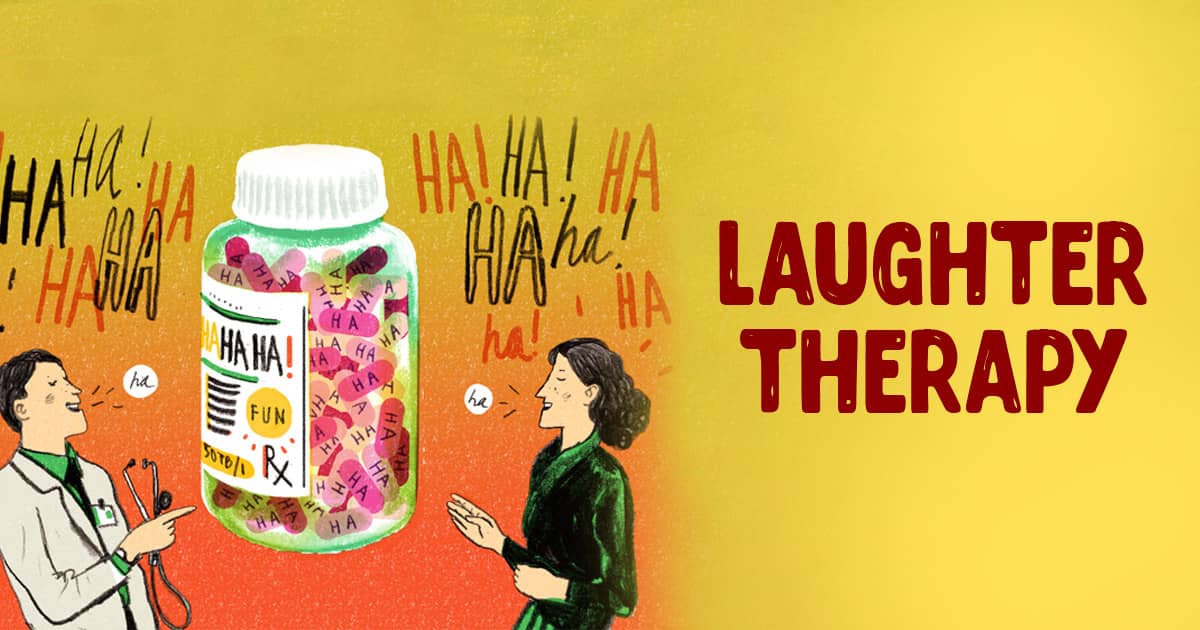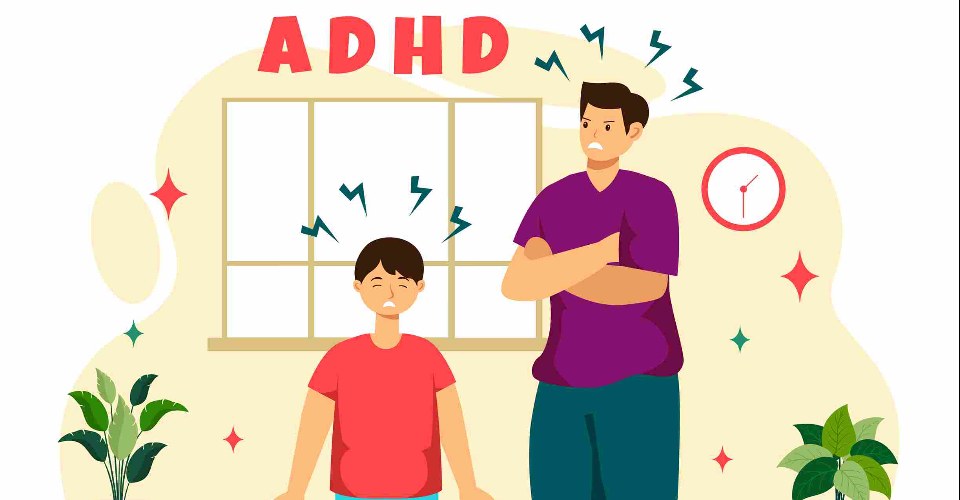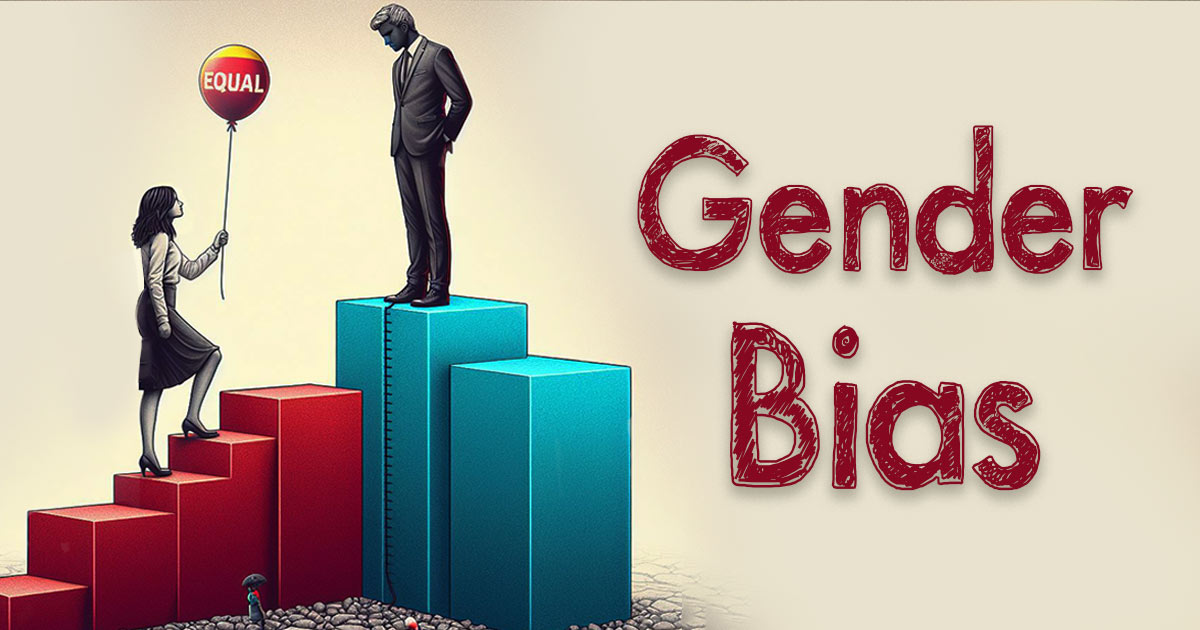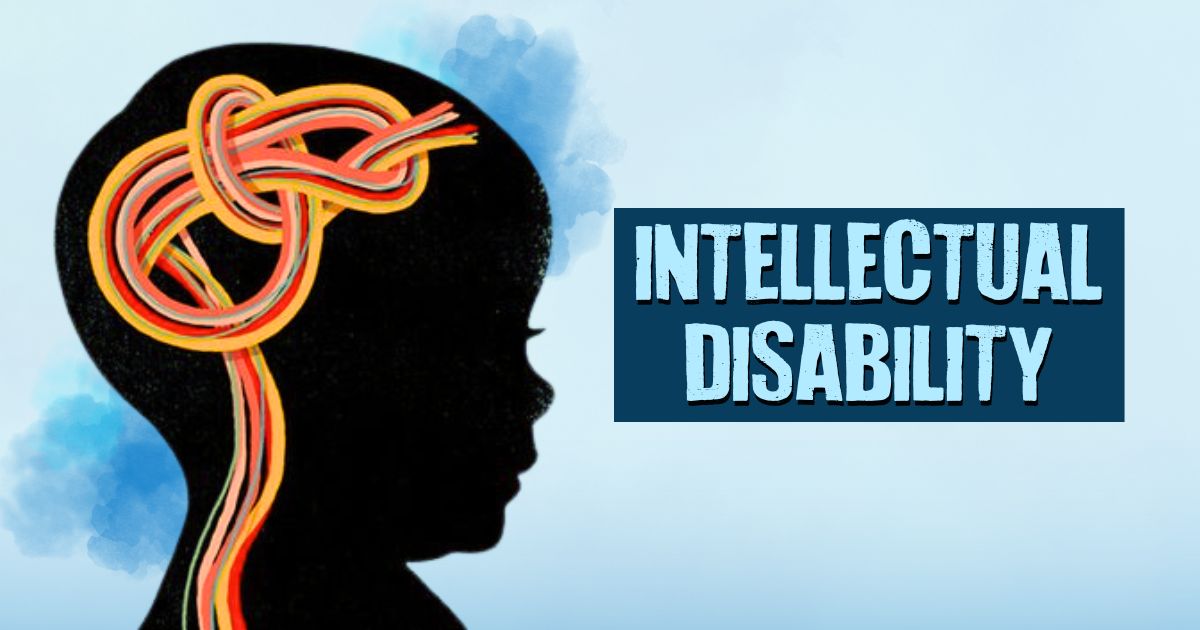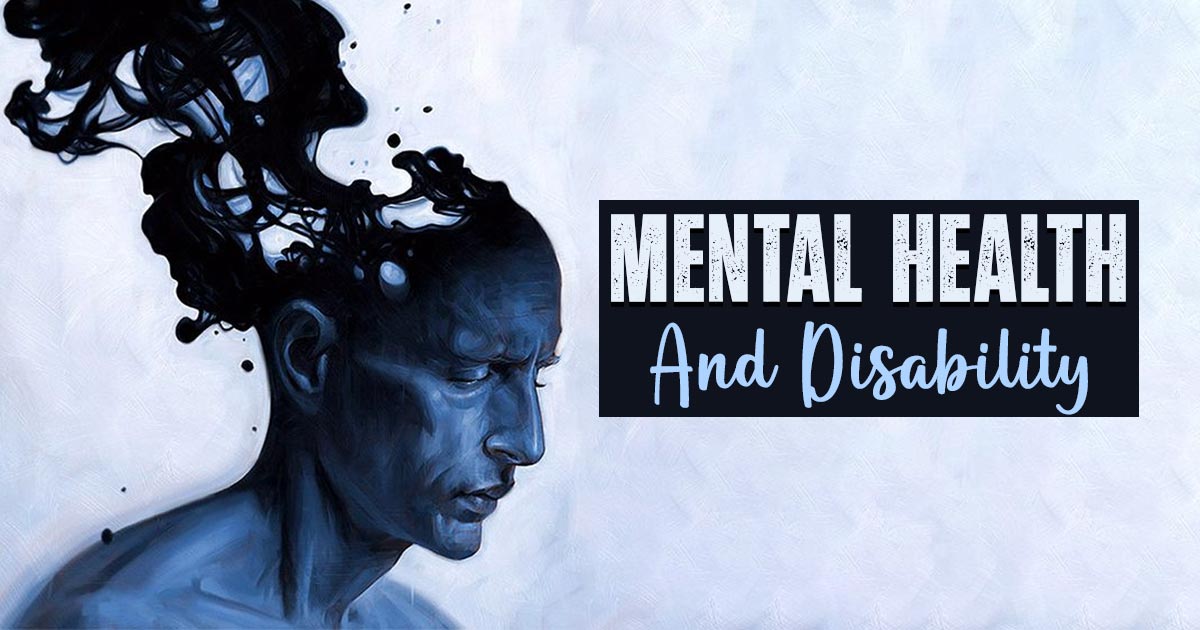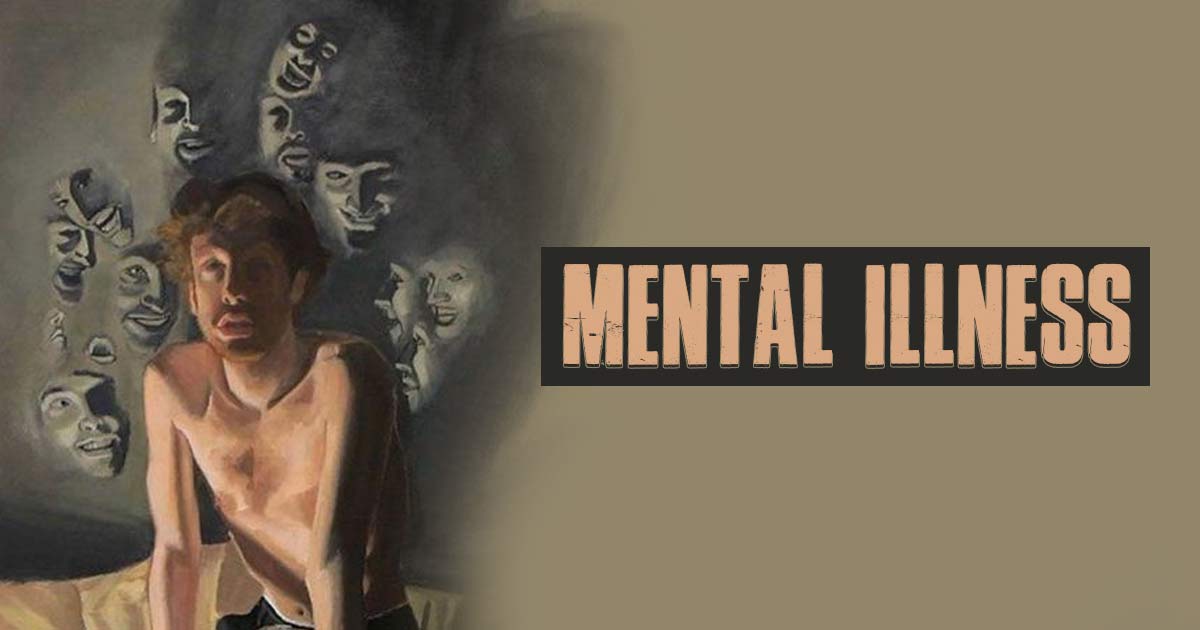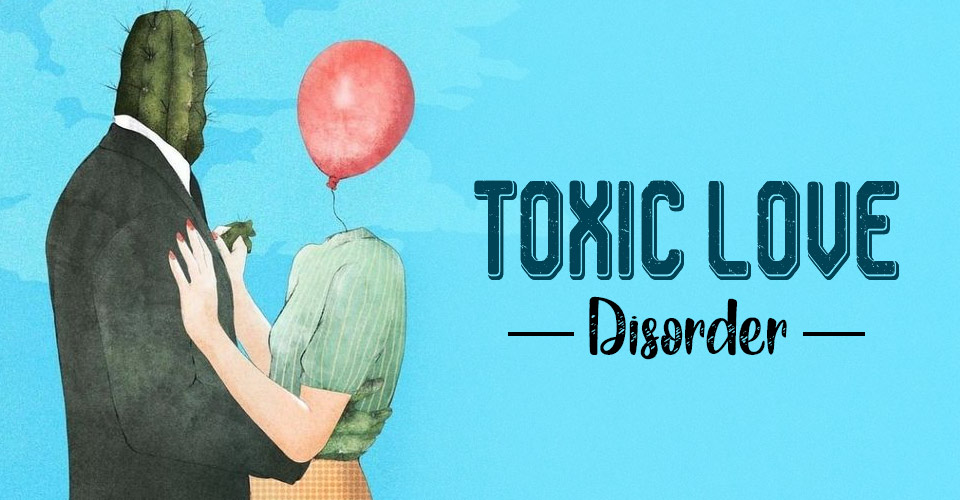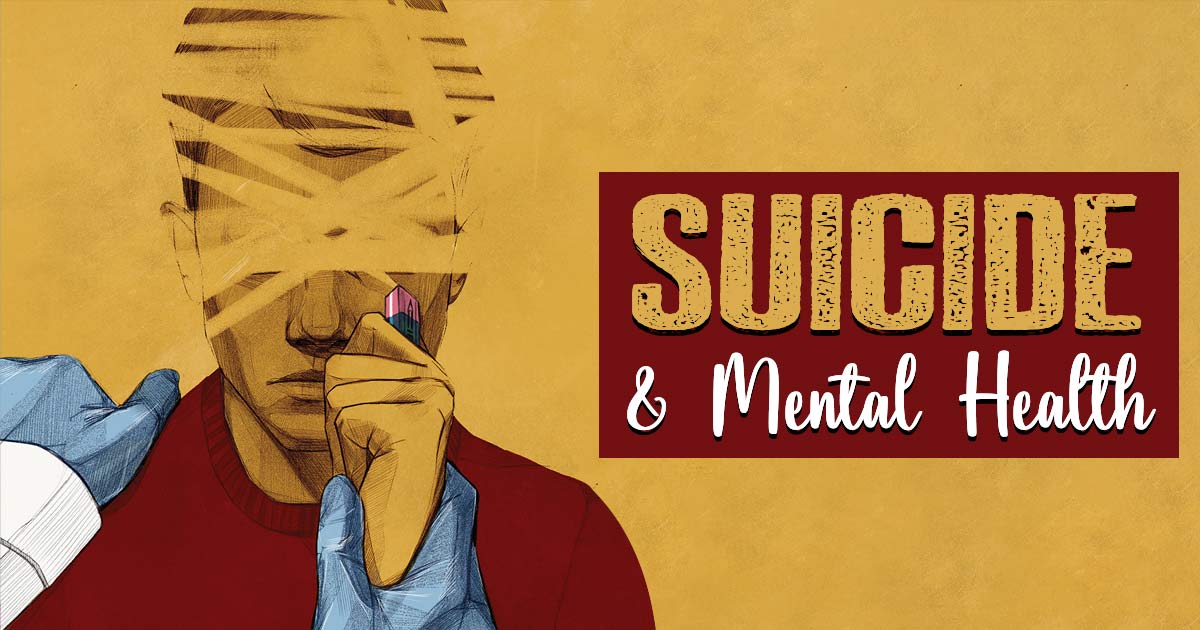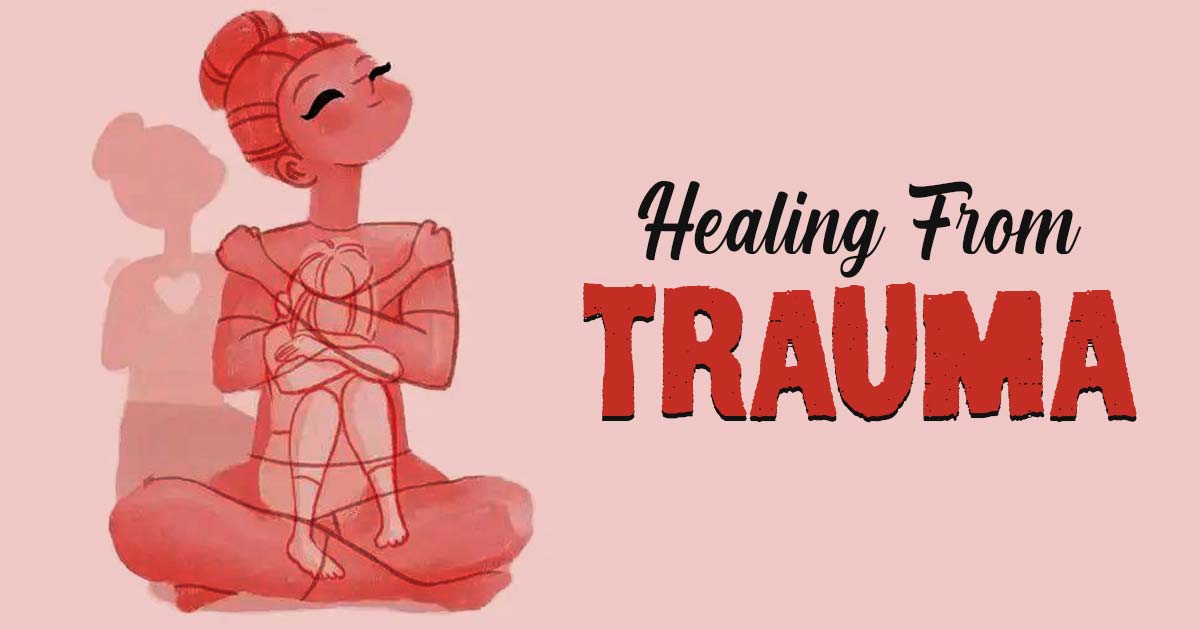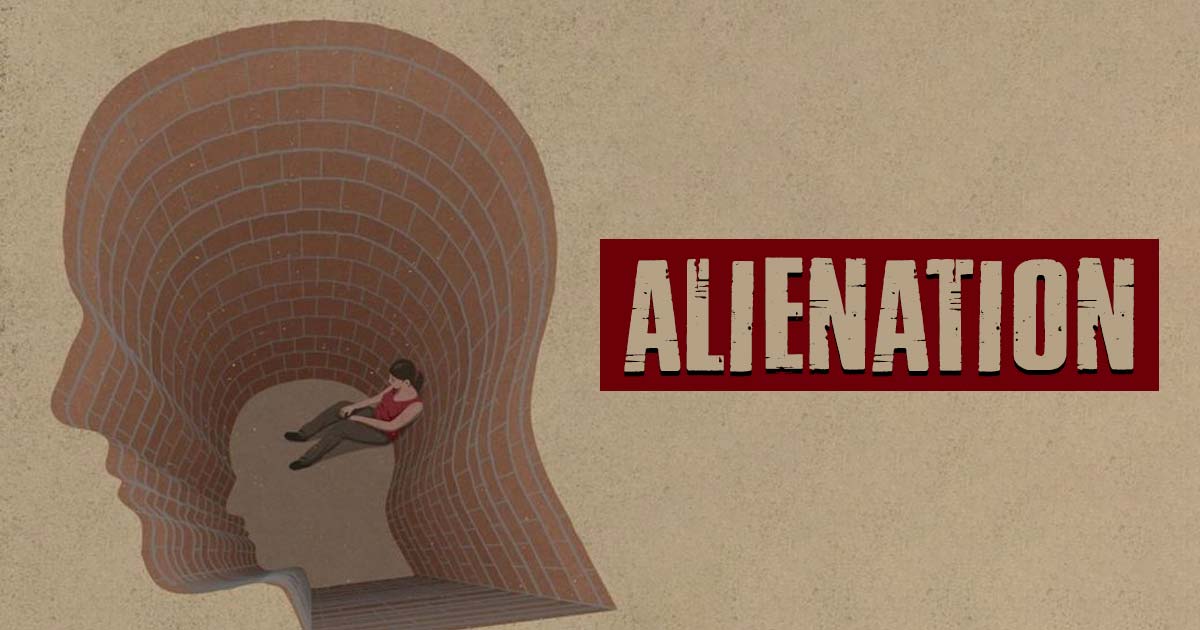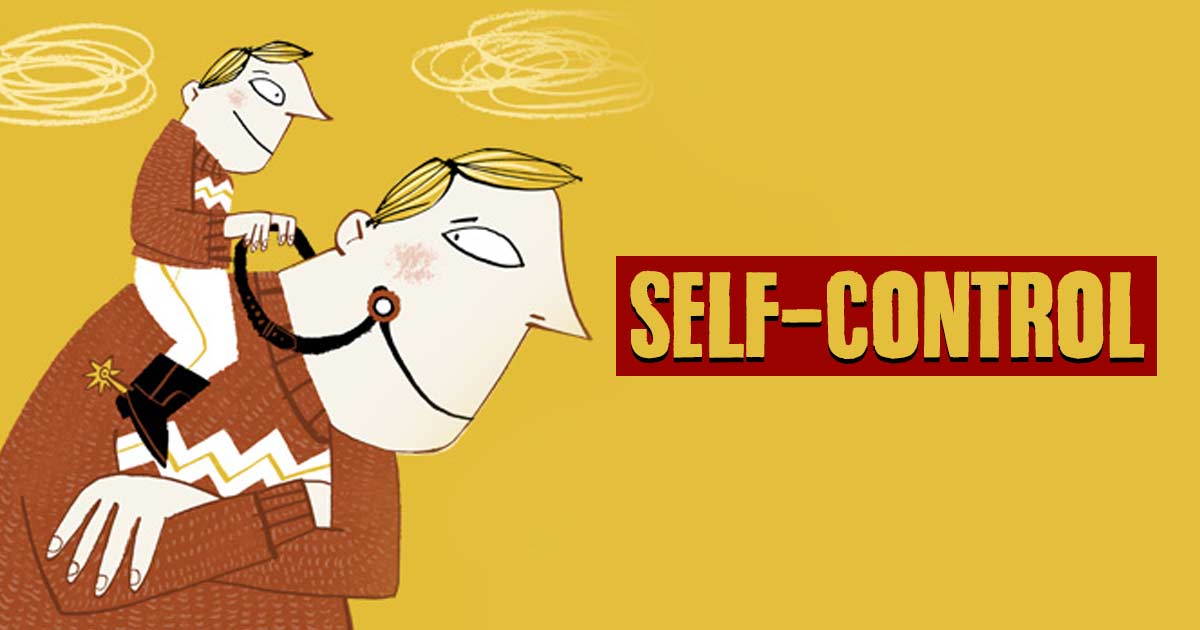Laughter therapy involves the use of laughter and breathing exercises to improve one’s physical, mental, and emotional well-being. It has been scientifically proven to offer a range of health benefits, such as reducing stress levels, enhancing the immune system, and elevating one’s mood and well-being.
What is Laughter Therapy?
Laughter therapy is a therapeutic technique 1 Ghodsbin, F., Sharif Ahmadi, Z., Jahanbin, I., & Sharif, F. (2015). The effects of laughter therapy on general health of elderly people referring to jahandidegan community center in shiraz, iran, 2014: a randomized controlled trial. International journal of community based nursing and midwifery, 3(1), 31–38. that utilizes deliberate laughter to enhance both physical and mental well-being. It was pioneered by Dr. Madan Kataria 2 Funakubo, N., Eguchi, E., Hayashi, R., Hirosaki, M., Shirai, K., Okazaki, K., Nakano, H., Hayashi, F., Omata, J., Imano, H., Iso, H., & Ohira, T. (2022). Effects of a laughter program on body weight and mental health among Japanese people with metabolic syndrome risk factors: a randomized controlled trial. BMC geriatrics, 22(1), 361. https://doi.org/10.1186/s12877-022-03038-y , a physician in India, who discovered the positive effects of laughter on his patients.
Laughter therapy sessions involve engaging in playful exercises and games designed to promote laughter, social bonding, and communication skills, which can include different types 3 Louie, D., Brook, K., & Frates, E. (2016). The Laughter Prescription: A Tool for Lifestyle Medicine. American journal of lifestyle medicine, 10(4), 262–267. https://doi.org/10.1177/1559827614550279 of laughter such as silent laughter, deep belly laughter, and contagious laughter.
The practice has been found to significantly reduce anxiety levels by up to 50% 4 Yoshikawa, Y., Ohmaki, E., Kawahata, H., Maekawa, Y., Ogihara, T., Morishita, R., & Aoki, M. (2018). Beneficial effect of laughter therapy on physiological and psychological function in elders. Nursing open, 6(1), 93–99. https://doi.org/10.1002/nop2.190 , thereby increasing energy levels and promoting a positive mindset. The underlying idea is that laughter stimulates the release of endorphins, the body’s natural “feel-good” chemicals, which can help to counteract stress hormones and create a sense of well-being.
Relation Between Laughter Therapy and Mental Health
Laughter therapy has been shown to have a positive relationship with mental well-being 5 Yim J. (2016). Therapeutic Benefits of Laughter in Mental Health: A Theoretical Review. The Tohoku journal of experimental medicine, 239(3), 243–249. https://doi.org/10.1620/tjem.239.243 , such as:
- Laughter helps reduce stress hormones such as cortisol and adrenaline, which can lower stress levels and promote relaxation.
- Laughter can boost the immune system by increasing the production of antibodies and activating immune cells that fight off infections.
- Laughter has been linked to improved cognitive function, including memory, creativity, and problem-solving skills.
- Laughter therapy can provide a sense of joy and positivity, which can help shift a person’s perspective, improve mood, and reduce symptoms of depression.
- Laughter therapy helps to feel better emotionally, people may feel more empowered to take on challenges and communicate their needs more assertively.

Types of Laughter Therapy
Laughter therapy encompasses several types 6 Gonot-Schoupinsky, F. N., & Garip, G. (2018). Laughter and humour interventions for well-being in older adults: A systematic review and intervention classification. Complementary therapies in medicine, 38, 85–91. https://doi.org/10.1016/j.ctim.2018.04.009 , such as:
1. Humor Therapy
This involves group sessions where participants use funny materials 7 Amici P. (2019). The Humor in Therapy: the Healing Power of Laughter. Psychiatria Danubina, 31(Suppl 3), 503–508. such as books, movies, or cartoons to trigger laughter, while the therapist encourages them to share their humorous experiences.
2. Triggers
Here, the therapist finds the client’s specific laughter triggers 8 Manninen, S., Tuominen, L., Dunbar, R. I., Karjalainen, T., Hirvonen, J., Arponen, E., Hari, R., Jääskeläinen, I. P., Sams, M., & Nummenmaa, L. (2017). Social Laughter Triggers Endogenous Opioid Release in Humans. The Journal of neuroscience : the official journal of the Society for Neuroscience, 37(25), 6125–6131. https://doi.org/10.1523/JNEUROSCI.0688-16.2017 and creates a humor profile, teaching them exercises to use laughter as a tool to deal with emotional stress.
3. Laughter Meditation
This type of meditation involves 9 Knowles, P. (2018). Impact and Need of Laughing Medicine for Sound Mind and Body-An Analysis Study. Available from: https://www.researchgate.net/publication/326369317_Impact_and_Need_of_Laughing_Medicine_for_Sound_Mind_and_Body-An_Analysis_Study stretching, laughing, and crying, along with silence, to relieve stress and achieve inner silence.
4. Laughter Yoga and Other Non-Humor Body Treatments
Laughter yoga combines breathing 10 Weinberg, M. K., Hammond, T. G., & Cummins, R. A. (2013). The impact of laughter yoga on subjective wellbeing: A pilot study. European Journal of Humour Research, 1(4), 25–34. https://doi.org/10.7592/ejhr2013.1.4.weinberg , yoga, and laughter exercises to promote relaxation, and other non-humor techniques include clapping, dancing, and vocalizing laughter-like sounds.
5. Improv (Spontaneous Performance of Comedy)
Although it is not an official type of 11 Medler, B., & Magerko, B. (2010). The implications of improvisational acting and role-playing on design methodologies. Human Factors in Computing Systems. https://doi.org/10.1145/1753326.1753398 laughter therapy, research suggests that participating in improvisational comedy can also be therapeutic.
Read More About Humor Here
How Laughter Therapy Exercises Work
The effects of laughter therapy typically involve the following steps 12 Yim J. (2016). Therapeutic Benefits of Laughter in Mental Health: A Theoretical Review. The Tohoku journal of experimental medicine, 239(3), 243–249. https://doi.org/10.1620/tjem.239.243 :
- The therapist introduces the group and explains the purpose and benefits of laughter therapy.
- Participants engage in warm-up activities such as deep breathing, stretching, and relaxation techniques.
- The therapist leads the group through various laughter exercises, such as laughing for no reason, fake laughter, and group activities that promote playfulness and social interaction.
- Participants are encouraged to share their experiences, thoughts, and emotions related to laughter and humor in a supportive environment.
- The session ends with a cool-down period and reflection on the experience. Participants may share their feedback and insights from the session.
Mental Health Benefits of Laughter Therapy
Laughter therapy has a range of potential benefits 13 Yoshikawa, Y., Ohmaki, E., Kawahata, H., Maekawa, Y., Ogihara, T., Morishita, R., & Aoki, M. (2018). Beneficial effect of laughter therapy on physiological and psychological function in elders. Nursing open, 6(1), 93–99. https://doi.org/10.1002/nop2.190 , including:
- Providing a sense of joy, happiness, and overall well-being
- Releasing endorphins 14 Si S Çeli K, A., & Kılınç, T. (2022). The effect of laughter yoga on perceived stress, burnout, and life satisfaction in nurses during the pandemic: A randomized controlled trial. Complementary therapies in clinical practice, 49, 101637. https://doi.org/10.1016/j.ctcp.2022.101637 hormone, the body’s natural painkillers and mood boosters
- Lowering blood pressure and improving cardiovascular health
- Strengthening social connections and relationships
- Promotes relaxation and improves sleep quality
- Increases self-esteem and confidence
- Enhances mental alertness and memory
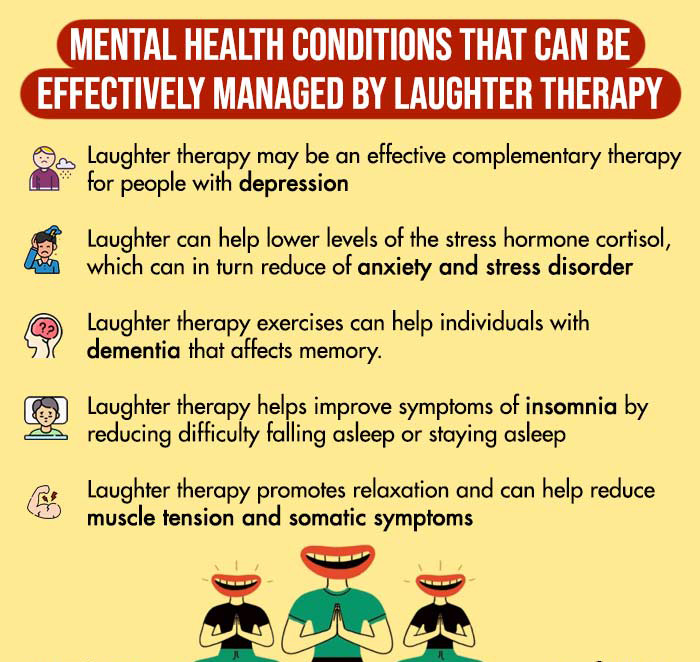
How Laughter Can Work As A Coping Mechanism
Here are some tips for 15 Akimbekov, N. S., & Razzaque, M. S. (2021). Laughter therapy: A humor-induced hormonal intervention to reduce stress and anxiety. Current research in physiology, 4, 135–138. https://doi.org/10.1016/j.crphys.2021.04.002 practicing laughter therapy exercises:
- Start with deep breathing exercises to relax your body and mind.
- Find a quiet and comfortable place where you can laugh without interruption or self-consciousness.
- Practice with a partner or in a group to increase the positive effects of laughter and social support.
- Use props such as funny hats or masks to increase the hilarity of the situation.
- Don’t be afraid to fake laughter at first, as it can quickly turn into genuine laughter.
- Focus on the present moment and let go of any negative thoughts or worries.
- Incorporate laughter into your daily routine by watching funny videos, reading humorous books, or attending comedy shows.
- It’s best to find a certified instructor who can guide you through the exercises and provide support.
- Enjoy your own company and embrace the experience that can fully immerse yourself in the practice and reap the benefits of laughter therapy.
Takeaway
By stimulating laughter, whether through humor, triggers, meditation, or yoga, individuals can experience a range of benefits such as reduced stress, improved mood, strengthened immune system, enhanced social connections, and increased pain tolerance. The effects of laughter therapy exercises can help individuals develop a more positive outlook, cope better with challenging situations, and improve their overall quality of life.
At A Glance
- Laughter therapy involves using humor and laughter as a therapeutic tools.
- It can be administered in various forms, including humor therapy, trigger therapy, laughter yoga, and meditation.
- Laughter therapy has numerous benefits on mental, emotional, and physical well-being, including reducing stress and anxiety, increasing energy levels, and improving mood.
- Laughter therapy benefits in drawing people closer together and promoting better communication and relationships.
- Techniques used in laughter therapy include breathing exercises, stretching, and various laughter-inducing exercises.
- Laughter therapy can be administered in a group setting or individually, with a trained therapist, or as self-help.
Frequently Asked Questions (FAQs)
1. Can laughter therapy help with depression?
While laughter therapy alone may not be enough to treat depression, it can be a helpful complementary therapy to improve mood and reduce stress.
2. How do I find a laughter therapist?
To find a laughter therapist, you can start by searching online for laughter therapy professionals in your area, asking for referrals from your healthcare provider or therapist, or checking with local wellness centers or yoga studios that may offer laughter therapy classes.
3. What should I expect during a laughter therapy session?
During a laughter therapy session, you can expect to participate in a variety of exercises that promote laughter, such as group laughter exercises, breathing techniques, and playful activities. The therapist may also incorporate elements of mindfulness and relaxation into the session to further enhance the benefits of laughter therapy.

